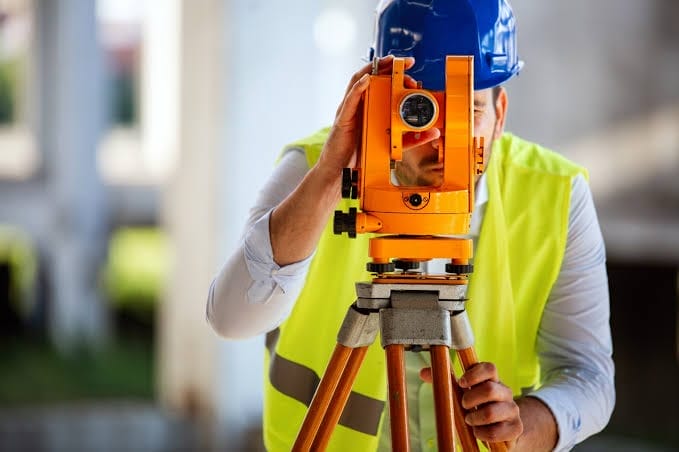In buying, selling, or developing land, real estate surveying is often the unsung hero. Nine out of ten property transactions fail or become court cases because one crucial step is skipped having the land surveyed properly. As a beginner buyer, seasoned investor, or builder, an accurate understanding of real estate surveying can cost you less, save you time, and avoid future disputes.
What is Real Estate Surveying?
Land surveying is the process of measuring and mapping land, like boundaries, topography, and physical characteristics. Professional surveyors use specialized equipment and legal instruments to define where a piece of property begins and ends, and what is within or without it.
In simple terms, a survey tells you:
Who owns what
Where your lot ends and your neighbor’s begins
If your building plans are legal
If there are easements or encroachments
Types of Real Estate Surveys
Different types of properties require different surveys. These are some you should know:
Boundary Survey
Establishes the lawful boundaries of a property. Required prior to acquisition, building, or fencing.
Topographic Survey
Traces the natural and man-made characteristics (rivers, hills, buildings) of a property. Beneficial for architects and engineers during construction planning.
Land Title Survey
Combines boundary and title information to aid in resolving ownership or legal conflicts.
Construction Survey
Used to mark where structures will be built based on design plans. Prevents costly mistakes.
Subdivision Survey
Divides a parcel of land into smaller lots, often for residential estates or commercial use.
Why Surveying is Non-Negotiable
- Prevents Disputes
You don’t want to build a fence on someone else’s land or discover a neighbor’s structure is sitting on yours. A boundary survey clarifies things before problems arise. - Confirms What You’re Buying
Are you getting the same land area shown on the documents? Surveys show that there is difference between paper and reality. - Speeds Up Permit Approvals
Local governments usually require survey reports before they issue building permits, especially for new construction. - Increases Land Value
Land with up-to-date certified surveys will be more likely to be appraised at a higher value because it reduces buyer uncertainty. - Enables Future Development
Want to build a shopping mall, a duplex, or even subdivide? You’ll need accurate surveys to avoid legal bottlenecks and plan efficiently.
Who Should Hire a Surveyor?
Buyers, to confirm boundaries before closing a deal
Sellers, to ensure they’re marketing the right size and extent of property
Developers and engineers, for land-use planning
Lawyers and estate managers, to resolve land disputes or settle estates
What a Good Survey Report Should Contain
A map/diagram showing boundaries and measurements
Explanation of land features and coordinates
Surveyor’s date of survey, licence number, and seal
Notes on encroachments, easements, or issues encountered
Tips When Having a Property Surveyed
Hire a licensed surveyor familiar with your area’s regulations
Request digital and hard copies of the survey
Get surveys updated after any major construction or land changes
Keep your survey documents safe for future resale or legal purposes
Final Word: Survey Before You Regret
In Nigeria and across Africa, so many nightmares in real estate could have been avoided with a single property survey. Whether buying a plot in Lekki, building in Enugu, or developing in Cape Town, always query: Has this land been surveyed and by whom?
It’s not a ritual. It’s the secret to every smart real estate decision.

